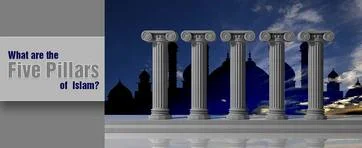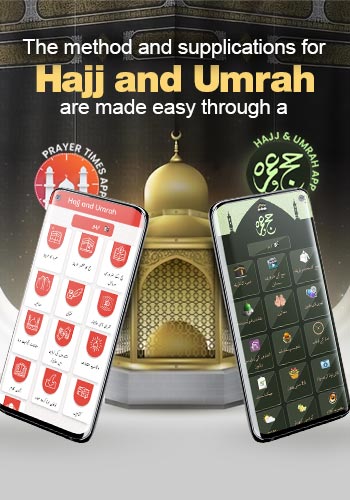Islam
What is Islam?
Islam is one of the world’s major religions, followed by over 1.9 billion people globally. It is a faith based on the principles of monotheism, the belief in one Allah, and was revealed to the world through the Prophet Muhammad ﷺ in the 7th century.
The foundation of the religion of Islam was laid in Mecca, Arabia by the Prophet Muhammad ﷺ himself. Today, Islam is spreading quickly around the world. Also, it’s one of the largest religions in the Middle East, Central Asia and South Asia. Indonesia, as it happens, leads with the largest number of Muslims in any Muslim-majority country worldwide.
What does Islam mean?
Islam, which in Arabic means "submission," calls for believers to submit to the will of Allah and live according to His guidance.
The word "Islam" comes from the Arabic root "Salam" which means peace, purity, and submission. A Muslim, therefore, is someone who practices this submission and follows the teachings of Islam.
How did Islam begin?
History of Islam began in the early 7th century in Mecca (modern-day Saudi Arabia) with the last Prophet of Allah, Hazrat Muhammad ﷺ, who is the last of prophets علیھم السلام in a long line of messengers sent by Allah throughout the history of mankind. Muhammad ﷺ received revelations from Allah Almighty through the Angel Jibreel over 23 years.
These revelations were compiled into the Quran, the holy book of Islam. The focus of these divine revelations was Tawheed - belief in one Allah or monotheism, Risalat - finality of prophethood, social justice, and moral conduct which form the basis of Islamic teachings.
Who is Allah (God)?
Some people believe that Muslims worship a God that is different from the one worshipped by Christians and Jews. This concept is false. Allah is simply the Arabic word for God. Muslims worship the same God who created the universe and all humanity: the God of Noah, Abraham, Moses, David and Jesus علیھم السلام.
In Islam, Allah Almighty is the one and only God. This is Tawheed and one has to believe in it to be a Muslim. So, according to the Islamic ideology, Allah is the Creator and Sustainer of the universe. Unlike other faiths, Muslims believe that Allah is beyond any human characteristics and cannot be represented in any physical form. He has no image and he cannot be seen.
Moreover, Allah Almighty is all alone in the reign over the entire universe. The essence of Islamic monotheism is that Allah is unique, eternal, and omnipotent, with no partners or equals.
Islam Basic Beliefs - What do Muslims believe?
The basic Islam beliefs of Oneness of Allah and Prophethood of Muhammad ﷺ are the same for Muslims around the world. However, there are other important beliefs as declared in the Holy Quran. So, to be a Muslim one has to hold a set of core beliefs. These include:
· Belief in one God (Allah).
· Belief in angels.
· Belief in the revealed books (including the Quran, Torah, and Bible).
· Belief in the prophets, from Hazrat Adam عَلَيْهِ ٱلسَّلَامُ to Hazrat Muhammad ﷺ.
· Belief in the Day of Judgment and the life after death.
· Belief in divine decree, meaning Allah's knowledge and control over all things.
What are the Five Pillars of Islam?
The holy Prophet Muhammad ﷺ based Islam religion on five basic pillars. These can also be called the Foundations of Islam. These pillars are the foundation of Muslim worship and practice, fostering a sense of community and discipline. Since, the Five Pillars of Islam are the core practices, every Muslim is required to follow them.
Shahada (Faith)
The declaration that “there is no deity worthy of being worshipped except Allah and Muhammad ﷺ is His messenger.” This declaration testifies that Allah Almighty exists and he is dissimilar and superior to his creation and that none is worthy of worship but Him. The shahada also testifies that the beloved Prophet Muhammad is among the prophets علیھم السلام who conveyed Allah Almighty’s revelation to humankind.
Salat (Prayer)
Performing five daily prayers from dawn to dusk facing the Kaaba. Salah was performed in some form or the other throughout history by all Prophets علیھم السلام and their followers as an essential part of Almighty Allah’s religion. However, Islam considers it crucial. So, a Muslim is required to pray five times a day within specific periods as taught by the Holy Prophet Muhammad ﷺ.
Zakat (Charity)
The word Zakaah means purification and growth. In Islam, an important principle is giving to the poor. This amount donated is called zakaah. Giving a fixed portion of one’s wealth as decreed by the sharia to help those in need. Zakaat is only due on Muslims that have the minimum required amount which varies with the type of wealth. Zakaah is a major source to cleanse your heart from greed, selfishness and the love of temporary world.
Sawm (Fasting)
Allah Almighty has instructed Muslims to observe the fast dawn to sunset during the holy month of Ramadan. The Islamic way of fasting involves abstinence from eating, drinking, smoking and sexual intercourse, etc. The is observed throughout the daylight hours of the lunar month of Ramadan. Also, fasting is not a retreat from life, it is a supplement to the Muslims’ ordinary activities.
Hajj (Pilgrimage)
The annual pilgrimage to Mecca is a once-in-a-lifetime obligation. That means undertaking a pilgrimage to Mecca at least once in a lifetime is mandatory for every Muslim - if physically and financially able. Millions of Muslims journey to the Sanctified city of Makkah each year from all corners of the globe. This provides a unique opportunity for people of various nations to meet one another as guests of Allah. Moreover, a person that has completed hajj comes out with a fresh outlook on life, with a purified soul and blessings from Allah.
Quran and Hadith
The foundations of Islam rest on two primary sources: the Quran, the verbatim word of Allah as revealed to the Prophet Muhammad ﷺ, and the Hadith, a collection of the sayings and actions of the Prophet Muhammad ﷺ.
Quran
The Glorious Quran presents all the Prophets of Allah Almighty as belonging to one single brotherhood. All the prophets علیھم السلام had a similar mission and conveyed the same basic message.
The source of their message was Allah. Similarly, the source of the Quran is Allah Himself. Moreover, the Holy Quran was revealed to humanity at large and not to any specific nation. So, all humanity can benefit from its timeless and ultimate wisdom.
Hadith and Sunnah
Hadiths are the sayings of the Holy Prophet Muhammad ﷺ. Sunnah is the way the Holy Prophet ﷺ led his life. These are example from which Muslims can receive guidance in their everyday life. Both of these, Hadith and Sunnah, help Muslims to lead a life of purity, truth and righteousness.
So, the texts of Quran and Sunnah provide guidance on every aspect of life, from spiritual worship to daily human interactions, and they are studied by Muslims to live a life in accordance with Allah's will.
Islamic Practices and Festivals
Daily life for a Muslim involves practices that remind them of their connection to Allah Almighty. In addition to the five basic pillars of Islam, Muslims follow dietary laws (like abstaining from pork and alcohol), adhere to modest dress, and follow ethical and moral guidelines in business and personal dealings.
Furthermore, regular recitation of the Holy Quran (Tilawat) and remembrance of Allah (dhikr) are integral parts of a Muslim’s spiritual practice.
Muslims also celebrate special occasions like Eid ul Fitr which comes after Ramadan and Eid ul Adha in which Muslims offer sacrifice of cattle, sheep, goat, camel, etc. for Allah Almighty. These are the two main festivals in Islam. Eid Milad un Nabi is the birthday of the prophet ﷺ and widespread celebrations are held in the Prophet’s ﷺ honor.
Islam facts
· Islam Religion is the second-largest in the world after Christianity.
· The Quran is written in Arabic, and while it has been translated into many languages, Arabic remains the liturgical language of Islam.
· Muslims consider Mecca, Medina, and Jerusalem as the three holiest cities.
· Islam has a rich cultural heritage, with contributions to art, science, literature, and architecture.
















